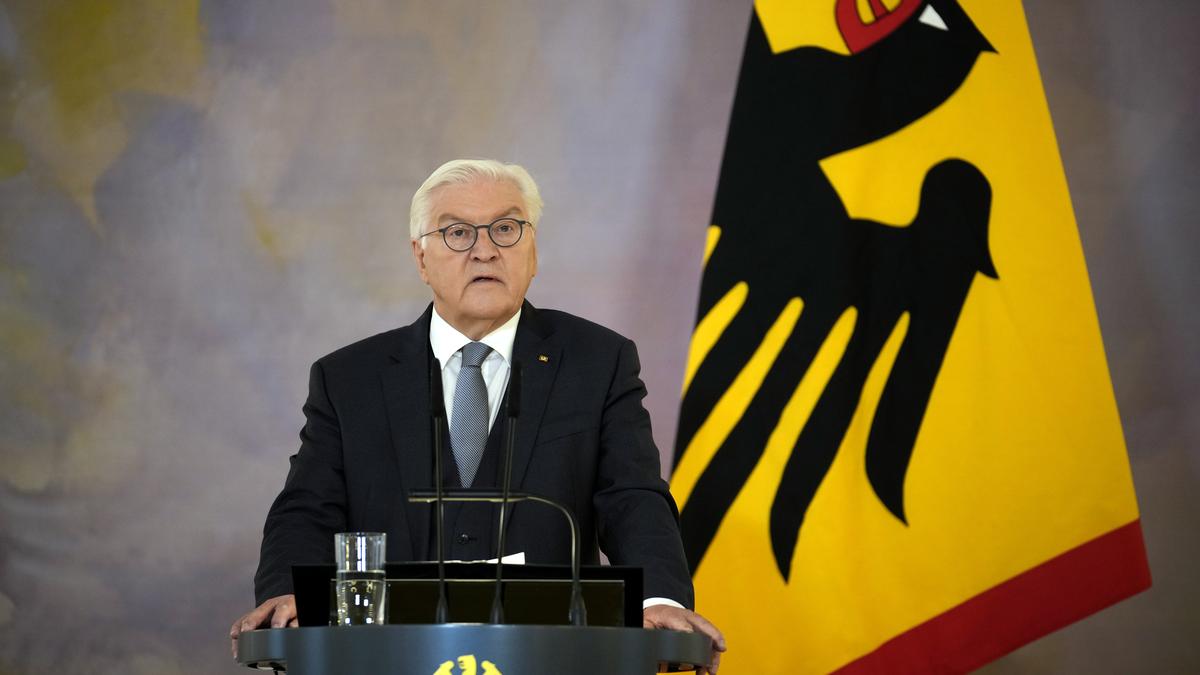
Germany’s President dissolves parliament, sets national election for February 23
The Hindu
German President dissolves parliament, setting early elections after Chancellor Scholz's coalition collapse, sparking political uncertainty.
German President Frank-Walter Steinmeier on Friday (December 27, 2024) ordered parliament dissolved and set new elections for Feb. 23 in the wake of the collapse of Chancellor Olaf Scholz's governing coalition.
Mr. Scholz lost a confidence vote on Dec. 16 and leads a minority government after his unpopular and notoriously rancorous three-party coalition collapsed on Nov. 6 when he fired his Finance Minister in a dispute over how to revitalize Germany’s stagnant economy.
Editorial | Persistent instability: On German politics
Leaders of several major parties then agreed that a parliamentary election should be held on Feb. 23, seven months earlier than originally planned.
Since the post-World War II constitution doesn’t allow the Bundestag to dissolve itself, it was up to Mr. Steinmeier to decide whether to dissolve parliament and call an election. He had 21 days to make that decision. Once parliament is dissolved, the election must be held within 60 days.
In practice, the campaign is already well underway. Polls show Mr. Scholz’s party trailing the conservative opposition Union bloc led by Friedrich Merz. Vice Chancellor Robert Habeck of the environmentalist Greens, the remaining partner in Mr. Scholz’s government, is also bidding for the top job — though his party is further back. If recent polls hold up, the likely next government would be led by Merz as chancellor in coalition with at least one other party.
Key issues include immigration, how to get the sluggish economy going, and how best to aid Ukraine in its struggle against Russia.











